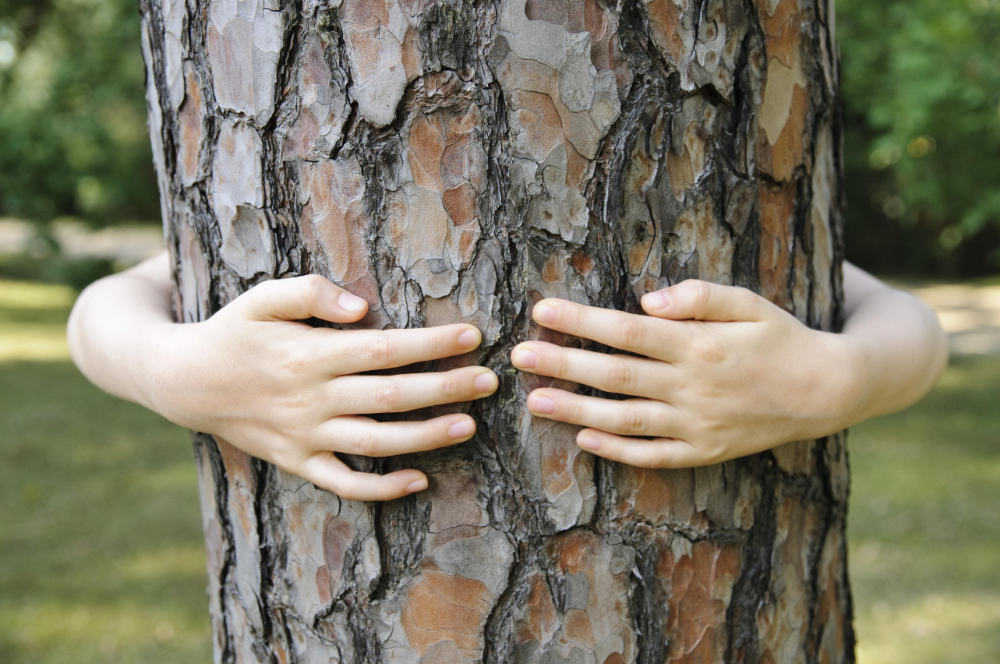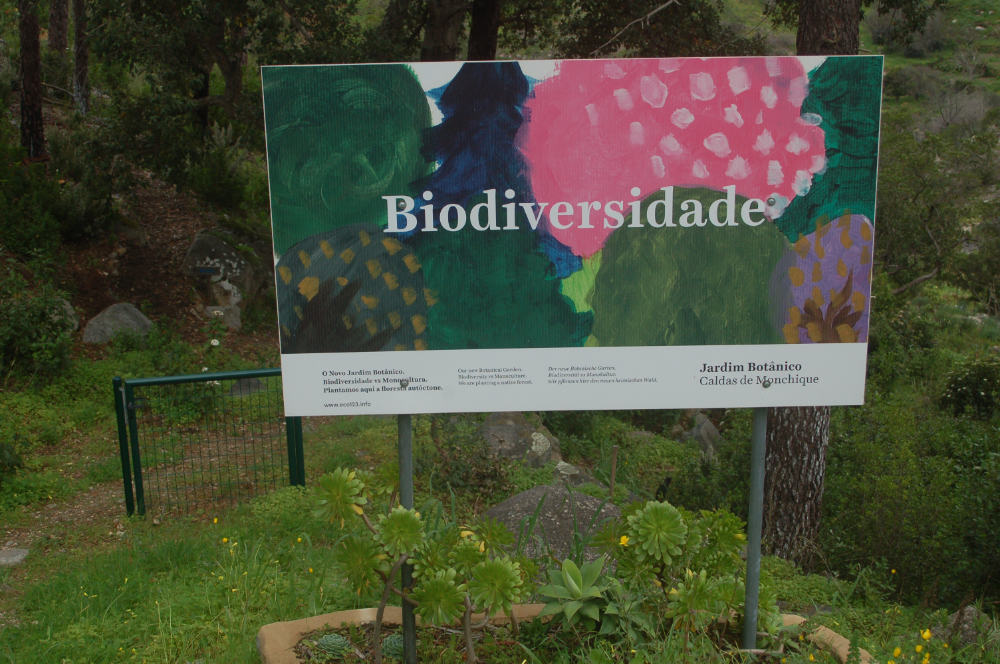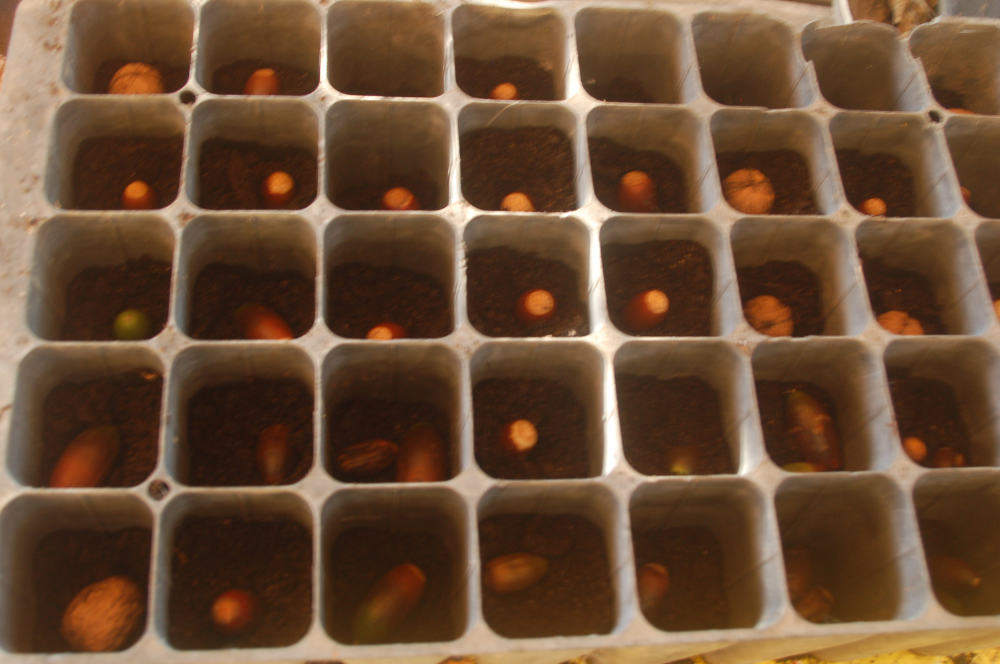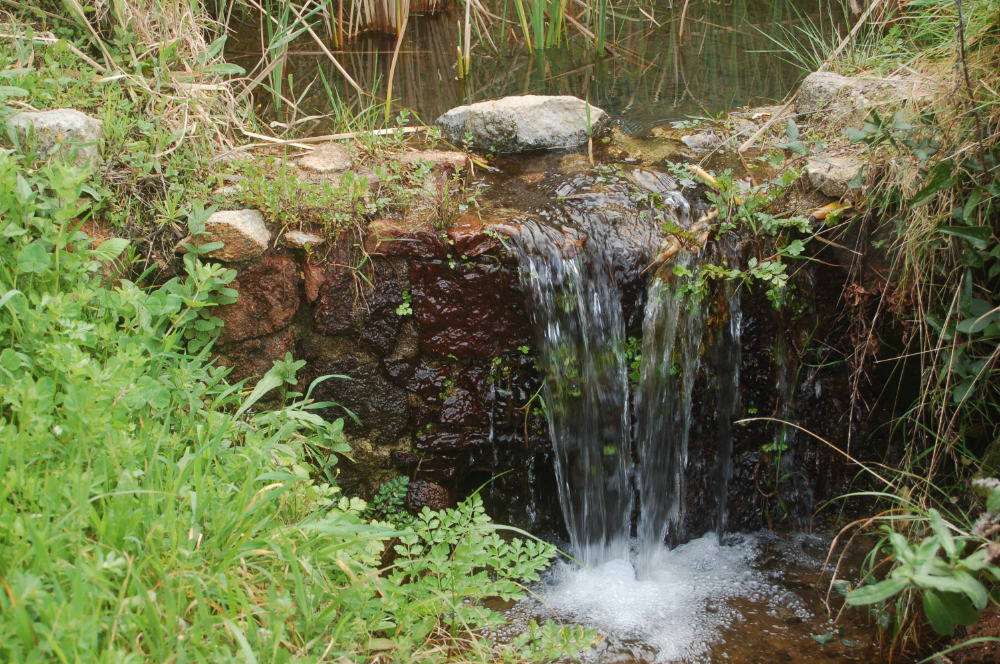Saturday 9th November 2024.

We recently had a very special kind of visitor. One Sunday morning, at ECO123’s botanical forest garden in Caldas de Monchique, we were visited (without being asked) by hunters with their dogs. Then the shooting started. I shouted loud and clear that they should please be considerate and stop their shooting immediately, and I was lucky. They left our magazine’s private property, although they were not happy about it, because they wanted to shoot partridges and hares and take them away with them.
That set me thinking. Since then, I’ve been wondering whether these hunters learned to read at school. And who their teachers were. Because they had to walk past a sign that clearly said in large letters that a botanical garden was being created here and that they had to open a gate. And so I ask myself whether they know at least ten different tree species – let’s take, for example, an oak, lime, beech, walnut, alder, ash, elm, olive, fig and carob tree – and whether they know what particular characteristics these species have? What do you learn as a hunter? What do you learn as a woodcutter? What do you learn when you subdue Nature? We see hundreds of logos every day; so, it’s easy to think that oaks and lime trees, partridges and hares, are not as important to our lives as Coca Cola, Nivea, Persil, Decathlon, Milka, Haribo, Nutella, Nestlé, Nike, Apple, Volkswagen, McDonalds, etc. What do you think?
In a certain way, this is true. We can easily get through the day without having to think even once about natural creatures, hares, wild boar, partridges and fire salamanders, about oak, lime and beech trees, and about everything else in our forest garden. Because, after the forest fires in August 2018, there wasn’t one single bird to be seen in the area for two years. It was deadly quiet for a long time. Until, finally, in January 2020, the nightingales came back, looking for partners to help them create their nesting sites. And now there are even two majestic Bonelli’s eagles circling overhead. Preserving fauna and flora and planting a diverse forest garden. That is our goal.
The Human-Nature relationship crisis
Our alienation from Nature is one of the main causes of our many man-made crises. It’s high time we got closer again – sharing some good experiences together, with empathy and with the right words and deeds.
Burning coal, gas and oil, clearing centuries-old forests and planting monocultures such as eucalyptus for the paper industry, breeding and slaughtering billions of animals, poisoning the environment with discarded packaging (including burning cigarette ends) from products that we don’t need – we can only bring ourselves to do all this because we no longer feel connected to Nature. This ecological destruction does not affect us: we hardly have anything to do with forest fires in the cities. Conversely, what this means, however, is that, if we want to solve these man-made crises, we need to heal our relationship with Nature. So clear, so simple. According to sustainability science, a profound change is needed in the relationship between Humans and Nature; such a change is considered one of the most important levers for guaranteeing a stable future. A lever that is perhaps not so obvious, but, according to current research, an extremely effective one.
The loss of our experience of Nature is referred to in research as the ‘extinction of experience’. The unanimous opinion is that this loss is continuing, partly because more and more people are living in cities, we are spending more and more time in front of screens and – perhaps most tragically – our opportunities for experiencing Nature are drastically declining, simply because biodiversity is being lost. Freshwater fish die out when streams and rivers are fished or when they dry up; hunters shoot whatever they can see in front of their guns; the animal and plant worlds are slowly dying, due to overexploitation and human disinterest in Nature.
This lack of experience of Nature not only has a negative impact on children’s development, but also on that of adults, on our happiness and our mental and physical health. Forests, green spaces and air quality make a decisive contribution to our well-being. Our willingness to protect the environment also declines when our experience of Nature begins to dwindle: We don’t protect what we don’t value. However, one of the deadliest effects of our alienation is of another kind: while we enjoy the ever-increasing diversity of meat in restaurants, the diversity of life is declining and hardly anyone is talking about it. We don’t even realise what we are losing – at least for the moment.
An obvious step in healing the Human-Nature relationship would be to experience Nature more: go outside, plant a small tree, cultivate a bed of potatoes, or plant onions, tomatoes, beans – an urban or forest garden. This could start at school, or you could do it in our botanical forest garden in Caldas de Monchique: parents and teachers with their children. Monchique actually has a great deal to offer for the future of young people. Just don’t put guns in their hands to shoot rabbits and partridges with…
To be continued next week…
 Eco123 Revista da Economia e Ecologia
Eco123 Revista da Economia e Ecologia





